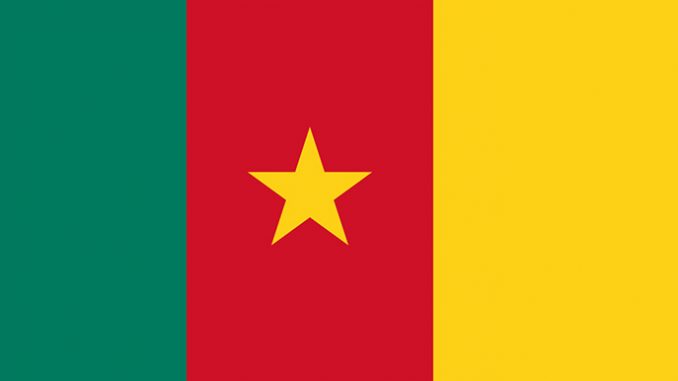
As Cameroon’s military forces and separatist fighters continue their deadly confrontation in the English-speaking Northwest and Southwest regions, Catholic bishops from these conflict zones have issued a powerful call for peace, urging the faithful to combat the devastating war with “the fire of love.”
The appeal came during the 78th Ordinary Meeting of Bishops of the Episcopal Conference of Bamenda, which encompasses the two war-torn regions.
In a particularly poignant homily, Bishop Aloysius Fondong Abangalo of Mamfe Diocese addressed Christians grappling with years of violence that have displaced thousands and shattered communities.
Bishop Abangalo stated that God’s love remains the greatest weapon against evil, against war, against conflict, offering a spiritual alternative to the cycle of killings, kidnappings, and destruction that has characterized the Anglophone crisis since it escalated into armed conflict in 2017.
The bishop masterfully wove biblical imagery into his message, drawing a contrast between the destructive fire of the Old Testament and the transformative spiritual fire of the New.
“God used fire to destroy Sodom and Gomorrah… to punish the Egyptians for their stubbornness,” he recalled. “Elijah called on fire to destroy soldiers… To the early Jews, fire symbolized both the presence and activity of God.”
However, Bishop Abangalo emphasized a fundamental shift with Christ’s Resurrection, when God sent the Holy Spirit as “tongues of fire” to those in the Upper Room.
“The Holy Spirit is a fire of God’s love that was given to us at Pentecost,” he explained. “It is that fire that keeps God’s love alive in the heart of every baptized person.”
In a region where peace negotiations have repeatedly failed and violence has become normalized, the bishop’s words carried particular weight.
Jesus is the Prince of peace, he remarked, “because where there is love, there is peace. Where there is genuine love, there is peace. But the peace of Jesus is not the peace of this world. The peace of this world is artificial, extrinsic, and it easily fades away. It’s a caricature of peace.”
“The peace of Jesus is a fruit of truth, integrity, and inner harmony,” he continued. “It comes from within—from the heart, not from the head. It is essentially the fruit that comes when a person truly lives in loving communion with God, with his brothers and sisters, and above all with himself.”
Bishop Abangalo’s message arrives at a critical juncture in Cameroon’s Anglophone crisis, which began as protests against perceived marginalization by the Francophone-dominated government but has since evolved into a complex armed conflict following a sturdy military response to the protests.
Separatists in the Anglophone regions have since been fighting for a breakaway state to be called Ambazonia.
At least 6.500 people have since been killed, according to the International Crisis Group. Nearly a million others have been displaced, with thousands seeking refuge in neighboring Nigeria.
One person who has witnessed the mayhem unfold from the start is Archbishop Andrew Nkea Fuanya of Bamenda, who is also the President of the National Episcopal Conference.
“The armed aspect of the crisis started in Mamfe and at the time I was bishop of Mamfe,” Archbishop Nkea told CWR.
“I remember when the fighting started in Kembong village (in Mamfe Diocese), I went to Kembong where many houses had been burnt down. And there was a young man lying there who had been shot. And dogs were feeding on his corpse. And the only thing I could do at the time was take a stone and throw at those dogs to disappear for the time that we were there. “
Nkea said he traced the thousands of Cameroonians who fled to Nigeria, recalling that while some lived in refugee camps, many others were sleeping “under bridges, in abandoned houses, with nothing to eat.”
And the refugees have heart-wrenching stories to tell of what they experienced and how they were able to escape.
Jane, a 28-year-old, was forced to flee her Kembong village in Southwest Cameroon nearly six years ago after participating in a peaceful demonstration that nearly cost her life.
“In the wake of that demonstration, soldiers stormed our village asking for the identities of those who took part in the protests,” Jane told CWR during a telephone interview.
“A friend told me that I was going to be picked up and advised that I leave immediately,” she recounted. “So I left that village that same day.”
Like many others, Jane had been protesting against years of marginalization by Cameroon’s predominantly Francophone government. Her escape was perilous, requiring four days of travel through dense forests to reach safety in Nigeria.
Jane constantly worries about her parents’ fate. “My mother’s house was burnt; my father’s house was burnt. I talk with my mother from time to time, but I worry a lot about her,” she said in a voice that betrayed rising anxiety.
Jane’s story mirrors that of approximately 70,000 Cameroonian refugees who have escaped similar violence.
Another refugee described the horror in their village of Akwaya: “The whole community was burnt down. Lots of people were killed: adults, young boys…people burnt alive. I don’t know the right words to use because it’s an experience I never imagined I would ever experience… It was terrible to behold. I had to sleep three nights in the forest before I could get to Nigeria.”
These accounts highlight the extreme measures many Cameroonians from the English-speaking regions have taken to escape persecution.
In 2019, the government came up with what it called the Major National Dialogue, meant to address the crisis. It made a number proposals including the adoption of a special status for the two Anglophone regions, the restoration of the House of Traditional Chiefs, the immediate relaunch of certain airport and seaport projects in the two regions, the rapid integration of ex-combatants into society, and the implementation of a law that government officials declare their assets, to tackle corruption.
Government officials hailed the resolutions as “a game changer,” but Archbishop Emeritus Cornelius Fontem Esua of Bamenda dismissed the entire process as “a monologue” in an interview with CWR.
He questioned the legitimacy of discussions held while separatist leaders remained imprisoned and noted that most participants were already sympathetic to the government’s stance, arguing the agenda failed to address the crisis’s root causes.
Meanwhile, Willibroad Dze-Ngwa, a Senior Fellow for the Global Center and an associate professor at the University of Yaoundé I in Cameroon, has consistently emphasized that the form of the state is the fundamental issue that should have been central to any dialogue.
He explains that when Cameroon’s English-speaking regions (formerly under British administration) and French-speaking areas (formerly under French administration) gained independence and reunified in 1961, they explicitly chose a federal system. But when the federation was scrapped in 1972 in favor of a unitary state, the framework was established for Anglophone marginalization and the suppression of their autonomy.
Still, the Bishop Abangalo believes that only “the fire of God’s Love” can lead to a permanent solution not only to the current crisis but also to all forms of evil, for “it would enable us to identify the forces of evil that reside deep within ourselves and in those nearest to us…and give us the courage to declare an uncompromising war against these forces.”
If you value the news and views Catholic World Report provides, please consider donating to support our efforts. Your contribution will help us continue to make CWR available to all readers worldwide for free, without a subscription. Thank you for your generosity!
Click here for more information on donating to CWR. Click here to sign up for our newsletter.









